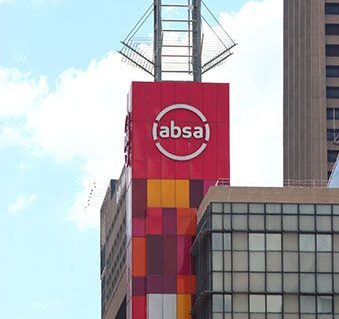An association of South African banks says members who are found to have brought the industry into disrepute could be expelled from the organisation.
Absa, First National Bank, African Bank, Capitec Bank, Standard Bank, Bidvest Bank and Nedbank are among the phalanx of Basa members.
The Banking Association of SA (Basa) was responding to Sunday World questions after the Competition Tribunal last week confirmed that lender Standard Chartered Bank had reached an agreement following its involvement in the so-called forex cartel case, paying an administrative penalty of R42.7-million.
The British multinational also agreed to cooperate in the prosecution of a case that involves 28 banks accused of manipulating the US dollar and rand currency pair between 2007 and 2013.
Citibank in 2017 paid an administrative penalty of R70-million.
Absa was exempted from liability for administrative penalties after it became the first bank to blow the whistle on the cartel and applied for leniency.
Basa’s spokesperson Paul Stober said: “Basa members are required to uphold good business practices and ethical governance. In cases where member banks are found to have brought the industry into disrepute, they can be expelled from Basa. In the event of wrongdoing by employees or staff of individual banks, we expect banks to apply necessary sanctions according to their policies, and the relevant enforcement agencies must pursue the law to its full extent,” said Stober.
Stober said Basa membership gives banks a voice on policy decisions.
“We are an industry association that represents member banks on legislative and regulatory matters that affect the industry, in parliament, and to government and regulators, among others,” he said.
However Redge Nkosi, the founder and executive director of Firstsource Money and Public Banking of South Africa, dismissed Basa’s threat as a mere public relations stunt, saying the association was yet to act against Absa and Citi.
“I don’t think they would expel any of their banks. They just talk so that the industry is seen to be serious [about tackling currency manipulation] but they are not. An association is a club and it is necessary for members to work together but if one is not there in Basa, of course they would suffer.
“But the question is how much suffering would be there. I don’t think there would be a lot of suffering at all [if a bank is expelled from Basa],” said Nkosi.
Corruption Watch’s executive director Karam Singh told Sunday World on Friday that he was encouraged by how the Competition Commission was holding the implicated banks accountable.
“It is really a positive development, especially since we have not seen accountability for misconduct on the part of financial institutions. The challenge with the amount of fines that they get is that banks seem to be able to stretch them out in their balance sheet as a cost of doing business,” said Singh.
He bemoaned that the fines issued out to the banks were not commensurate with the benefits received by the banks when they committed the offences.
“I think the issue of revoking licences is something that should be considered, especially in a context where there have been multiple and repeated violations, but I also think we need to have a functional banking system that would potentially be an appropriate sanction depending on the circumstances,” he said.
Business Unity SA’s chief executive Cas Coovadia said he condemned any behaviour that was unethical in a manner that has a negative impact on the country.
Coovadia said when the commission’s report came out, Busa told government to move quickly on the report and, “if there is prima facie evidence, must act against corporates and prosecute against where prosecutions are necessary.
On Thursday Reserve Bank governor Lesetja Kganyago told the media when announcing interest rates decision that the central bank had not instituted a probe because there were no breaches of exchange control regulations.
Kganyago, however, said the Reserve Bank, due to its expertise in the foreign exchange market, had been assisting the commission in the probe.
“They are embarking in a process, they approached us and asked us for assistance because we are in a foreign exchange market. We spent hours and hours with them; we provided all the assistance they required.
“Should they require any further assistance from us, they will get it. But they are the competent authority to investigate any allegations of market abuse and market manipulation. They must be given the space to do their work and follow their processes,” said Kganyago.




